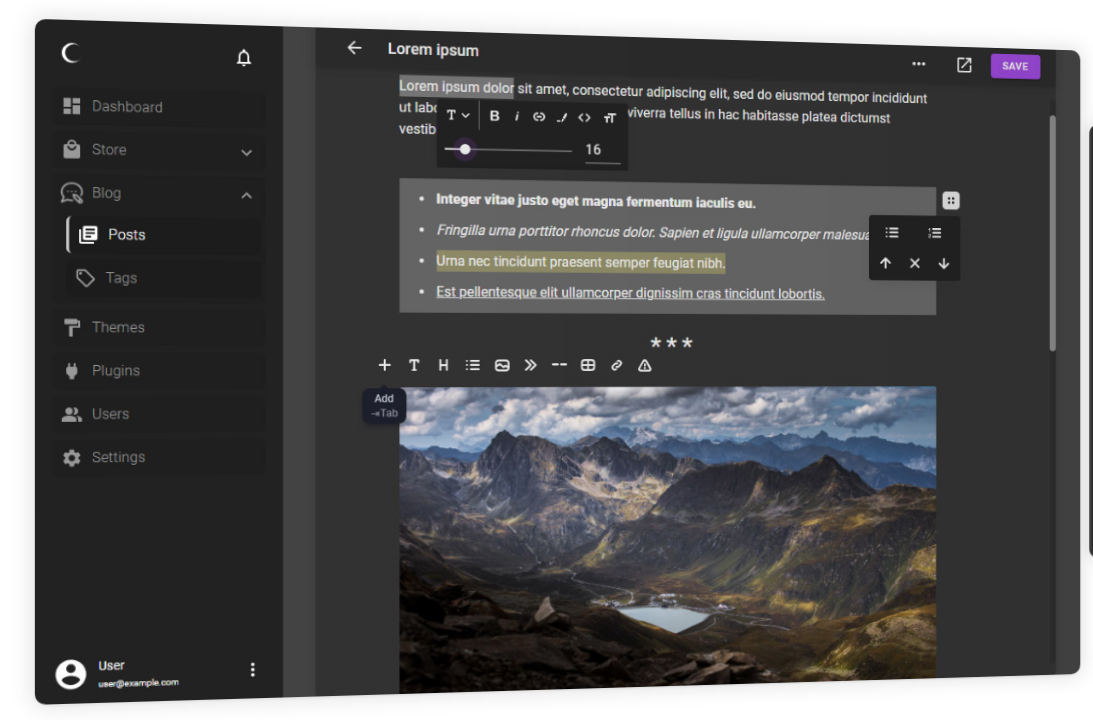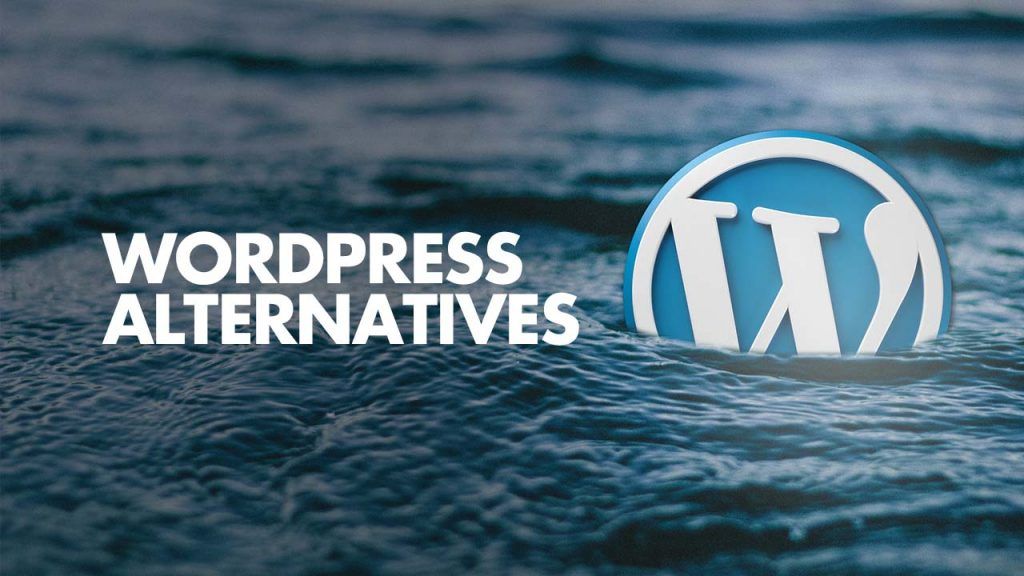Top 10 Open Source WordPress Alternatives, and Why you May Consider Migrating
Migrating from WordPress? Here are the top 10 alternatives.
Table of Content
WordPress is a popular content management system (CMS) that allows users to create and manage websites easily. However, it is not without its problems. One of the main issues with WordPress is its complexity. Setting up and customizing a WordPress website can be complicated, especially for users with limited technical knowledge.
Another concern with WordPress is its vulnerability to security threats. Due to its widespread usage, WordPress websites often become targets for hackers. Keeping a WordPress site secure requires regular updates and security measures, which can be time-consuming and challenging.
Additionally, WordPress can be resource-intensive, especially for larger websites. It requires a significant amount of server resources to run efficiently, which can result in slower website performance.
These problems have led many users to explore alternative CMS platforms. Some popular alternatives to WordPress include Joomla, Drupal, and Squarespace.
These platforms offer different features and functionalities, catering to various user needs. For example, there are an array of Squarespace plugins that enhance the capabilities of a website.

One of the main reasons why users consider alternatives to WordPress is simplicity. Many alternative CMS platforms provide a more user-friendly interface and easier website setup process, making them suitable for users without technical expertise.
You can check for your WordPress blog vulnerability using any of tools of the following link: 19 Free and Open-source WordPress Security Vulnerability Scanners and Pentesting Tools.
Another reason to explore alternatives is security. Some CMS platforms have built-in security features and regularly update their systems to protect against potential threats. This gives users peace of mind and reduces the risk of security breaches.
Lastly, performance is another factor that drives users to seek alternatives. Some CMS platforms are optimized for speed and performance, ensuring faster website loading times and better overall user experience.

In conclusion, while WordPress has its advantages, it is important to consider the problems associated with it. Exploring alternative CMS platforms can provide simpler setups, enhanced security, and improved performance for users seeking alternatives to WordPress.
Many WordPress users already are moving their website, content, and files into a static generator websites, you may need to check the best ones in this list: 20 Free and Open Source Static Site Generators.

Here, we offer you the best open-source WordPress alternative solutions, that you can migrate easily from your WordPress install to any of them in no time.
1- Ghost
Ghost is a free and open-source self-hosted blogging and publishing platforms. It supports posts, pages, mass newsletters' management, and comes with a built-in membership subscription.
While it does not have a plugin system, it has a many free and open-source themes, that you can download, customize and use.
2- Hugo
Hugo is a static website generator built by Go Lang. It enables you to convert your Markdown text into live websites. Hugo offers Multilingual support with i18n.
It also allows you to create and define your custom content type, create content API, custom menus and taxonomies, and generate custom outputs for your data as in JSON and AMP formats.

3- Fork CMS
ForkCMS is a user-friendly and powerful open source content management system (CMS) that enables website owners to create and manage their online presence with ease. It is built on top of the Symfony framework, which provides a solid foundation for the CMS's functionality.
With ForkCMS, website owners can easily create and publish content, manage users and permissions, customize the site design, and much more. Additionally, ForkCMS has a vibrant community of users and developers who are constantly contributing to its growth and improvement.
Overall, ForkCMS is an excellent option for anyone looking for a robust and flexible CMS solution.
4- Grav
Grav is a flat-file based CMS that many consider the WordPress flat-file counterpart. It has similar feature to WordPress that include content, media and file management, plugin and theme system.
Grav also has a vast community of professional users that keep it updated with new themes and plugins.
If you are looking for a lightweight WordPress alternative with similarity to WordPress, then try Grav.
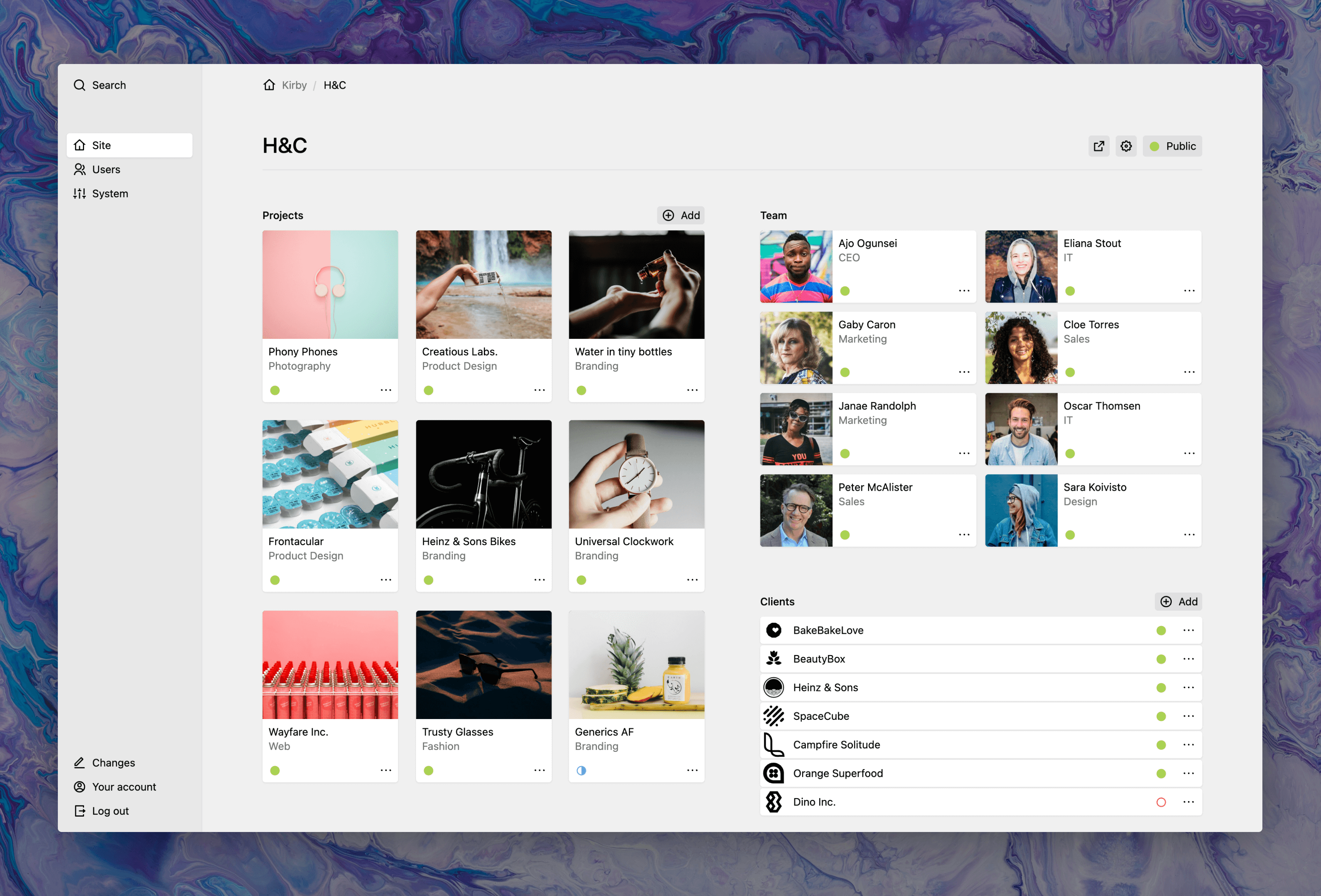
5- FlatSite
FlatSite allows you to create a statically generated website from WordPress, which can save you from being hacked easily, and offer a high speed website, and better cost-effective resources and results.
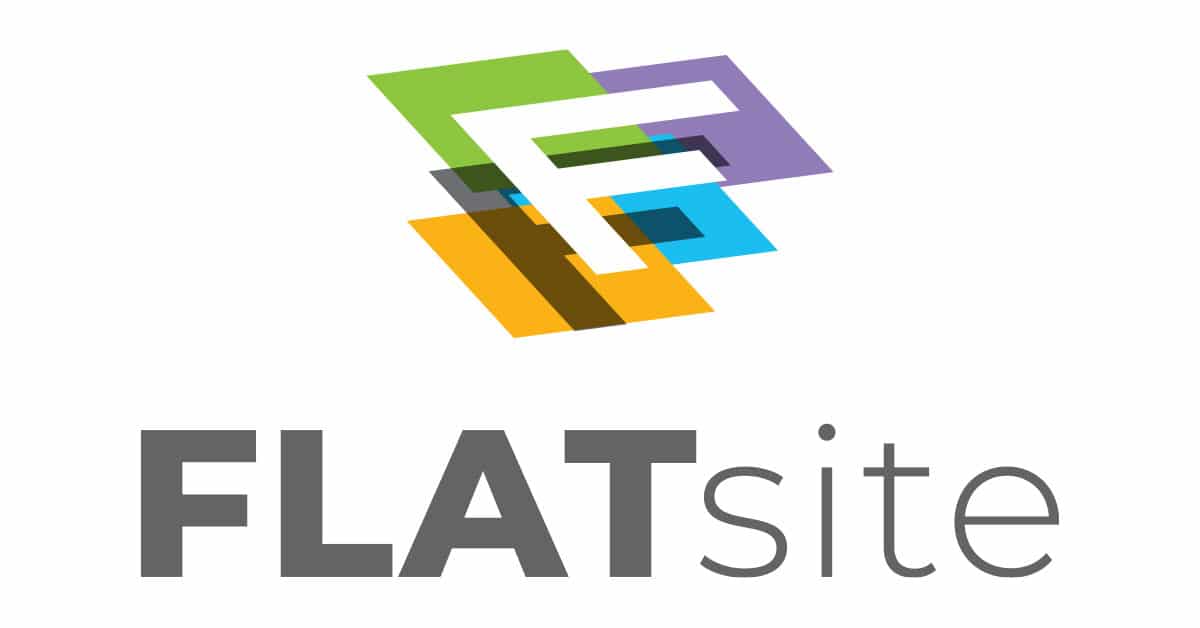
6- Wonder CMS
WonderCMS is a small and efficient flat file CMS that is easy to use and perfect for those who value speed and convenience. Its user-friendly interface ensures that users of all skill levels can easily create and manage their website without complex coding or installation processes.
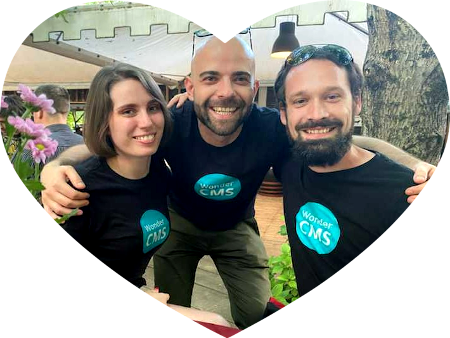
7- Winter CMS
Winter CMS is a free, open-source content management system built on the Laravel PHP framework. It offers a user-friendly interface that makes it easy to create and manage websites without the need for complex coding or installation processes.
Some of the benefits of Winter CMS include:
- Modular architecture that allows for easy customization and scalability
- Built-in support for advanced features such as localization, version control, and search engine optimization
- Ability to create custom plugins and extensions to extend the functionality of the platform
- Active community of developers and users who contribute to the ongoing development and improvement of the platform
Winter CMS can be used for a variety of use-cases, including:
- Corporate websites
- E-commerce sites
- Blogs and news websites
- Portfolios and personal websites
If you are looking for a powerful and flexible content management system that is easy to use and customize, Winter CMS is definitely worth considering.

8- Drupal
Drupal is a free and open-source content management system (CMS) that is used to build a wide range of websites and online applications. One of the key features of Drupal is its flexibility and scalability, making it a popular choice for building websites of all sizes and complexities.

9- Sulu CMS
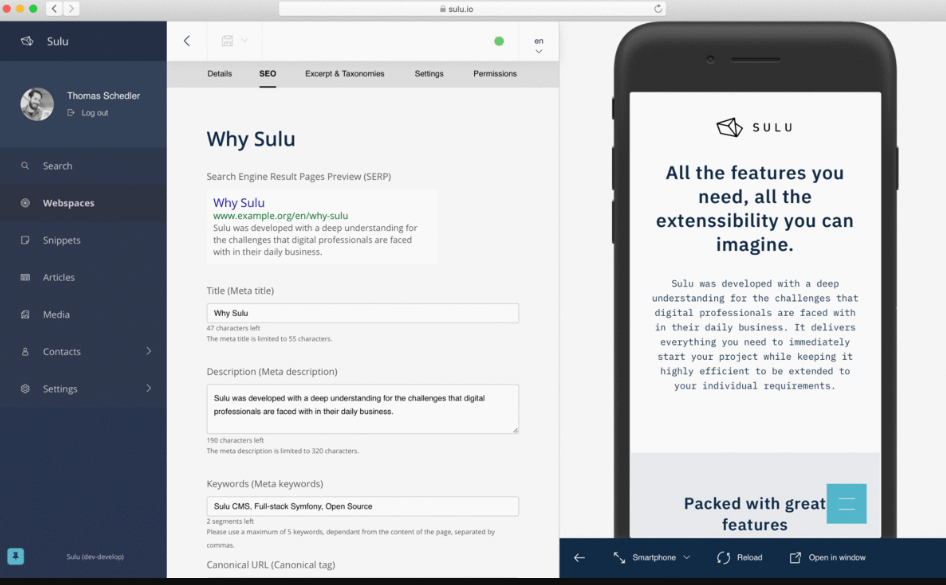
Sulu is a highly extensible open-source PHP content management system based on the Symfony framework. Sulu is developed to deliver robust multilingual and multi-portal websites while providing an intuitive and extensible administration interface to manage the full content lifecycle.
10- Jekyll
Jekyll is a static site generator that allows for the creation of simple, blog-aware, static sites. It takes Markdown files and compiles them into a static HTML site that can be hosted on any web server. Jekyll is popular among developers who want to create simple, static websites without the use of a content management system.
You can easily migrate from WordPress to Jekyll, by following this tutorial.

